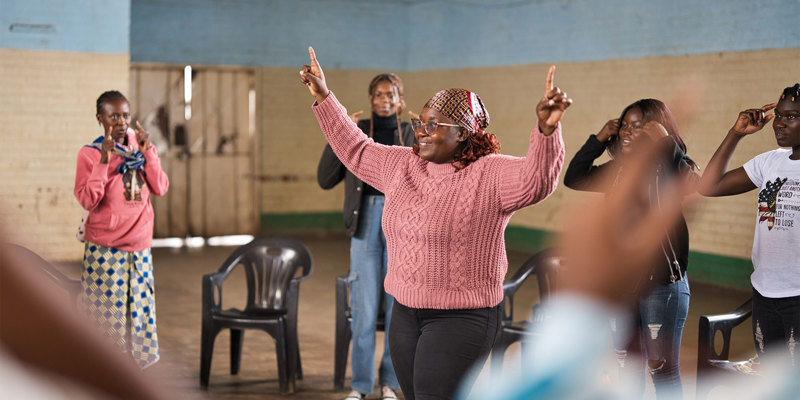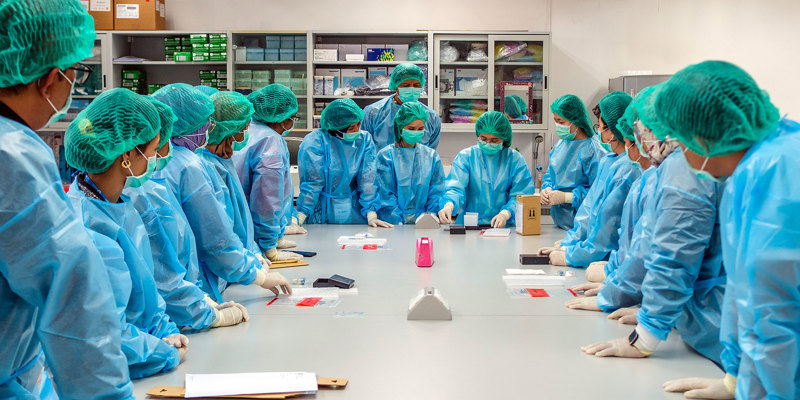

Namibia: At the Forefront of the HIV Response for Mothers and Children
Like in many countries in sub-Saharan Africa, women in Namibia are disproportionately impacted by HIV. But a focused, ongoing campaign has put the country on the forefront of fighting the disease – particularly for mothers and children.
Namibia has embraced the World Health Organization (WHO) triple elimination initiative, which aims to end mother-to-child transmission of HIV, hepatitis B and syphilis – deadly pathogens in a region home to nearly two-thirds of the world’s HIV burden and two-thirds of new hepatitis B infections.
These efforts have paid off. The rate of mother-to-child transmission of HIV has gone down by 70% over the last two decades. In 2023, all HIV-positive pregnant and breastfeeding women were on antiretroviral therapy, and 96% of babies born to mothers living with HIV were born free of the disease. Namibia is also the first African country to reach more than half of the infants born in 2022 with a timely dose of the hepatitis B vaccine at birth – one of WHO’s key metrics for success toward eliminating mother-to-child transmission of hepatitis B.
This year, WHO recognized Namibia’s landmark progress on both diseases – a standout in the region.
Over the next three years, the Global Fund will continue to invest in Namibia’s fight to end mother-to-child transmission of all three diseases, with targeted support for integrated and primary health care services for women and families.
This includes community-based efforts to ensure mothers and infants are tested and treated; training and mentorship programs for health workers to integrate HIV, hepatitis B and syphilis testing into antenatal care; awareness campaigns so that pregnant women and breastfeeding mothers know about and can access PrEP; early infant diagnosis and follow-up HIV testing for infants; and more.
Namibia’s achievement underscores the power of a comprehensive approach to health care, and of investing in strong health and community systems that can address pernicious, preventable diseases and maternal, newborn and child health together.







